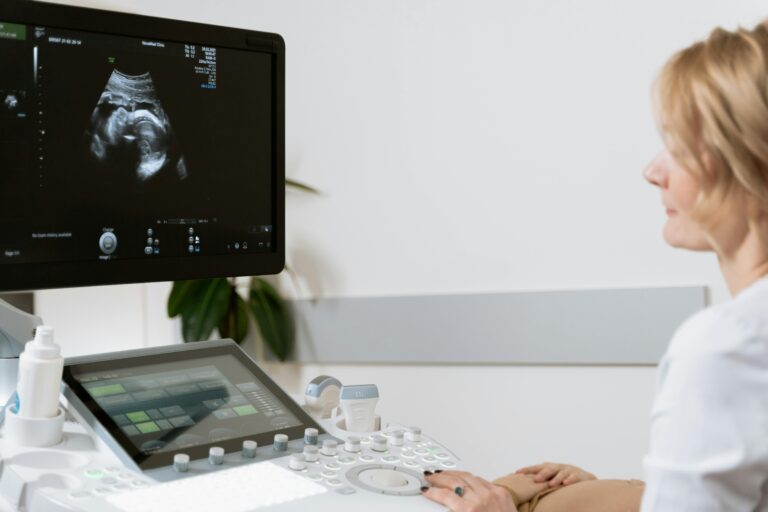The Importance of Regular Health Check-Ups

Regular health check-ups play a crucial role in maintaining overall health and well-being. They allow for early detection of potential health issues, management of existing conditions, and provide an opportunity for preventative care. Here are the key reasons why regular health check-ups are important:
1. Early Detection of Health Issues
- Prompt Intervention: Regular check-ups can detect health problems in their early stages when they are often more treatable. This can prevent complications and increase the chances of successful treatment.
- Screening Tests: Routine screenings such as blood pressure checks, cholesterol levels, diabetes screenings, and cancer screenings (e.g., mammograms, Pap smears, colonoscopies) can identify risks before symptoms arise.
2. Prevention of Diseases
- Vaccinations: Regular visits ensure you stay up-to-date with recommended vaccinations, protecting you from preventable diseases.
- Lifestyle Advice: Healthcare providers can offer guidance on healthy lifestyle choices, including diet, exercise, and smoking cessation, helping you to prevent chronic diseases like heart disease, diabetes, and hypertension.
3. Management of Chronic Conditions
- Condition Monitoring: For those with chronic conditions (e.g., diabetes, hypertension, asthma), regular check-ups allow for ongoing monitoring and management, ensuring conditions are kept under control.
- Medication Management: Adjustments to medications can be made based on current health status and test results, optimizing treatment plans.
4. Building a Relationship with Your Healthcare Provider
- Continuity of Care: Regular visits help build a trusting relationship with your healthcare provider, facilitating better communication and personalized care.
- Holistic View: Your provider gains a comprehensive understanding of your medical history, lifestyle, and health status, allowing for more effective and tailored health interventions.
5. Peace of Mind
- Reassurance: Knowing that you are actively managing your health and that any potential issues are being monitored provides peace of mind.
- Reduced Anxiety: Regular check-ups can reduce the anxiety associated with unknown health statuses and help you feel more in control of your health.
6. Health Education
- Information: Doctors and healthcare providers can offer valuable information about your health, including risk factors and preventive measures.
- Empowerment: Educating yourself about your health empowers you to make informed decisions about your care and lifestyle.
7. Tracking Progress
- Health Metrics: Regular check-ups allow you to track important health metrics (e.g., blood pressure, cholesterol levels, weight) over time.
- Goal Setting: You can set health goals and work with your provider to achieve them, whether it’s weight loss, improved fitness, or better management of a chronic condition.
8. Family Health History
- Genetic Risks: Regular check-ups provide an opportunity to discuss your family health history, identify genetic risks, and take proactive steps to monitor and manage potential hereditary conditions.
What to Expect During a Regular Health Check-Up
Medical History Review
- Discussion: Your healthcare provider will discuss your personal and family medical history, current medications, lifestyle habits, and any symptoms or concerns you may have.
Physical Examination
- Vital Signs: Checking vital signs such as blood pressure, heart rate, temperature, and respiratory rate.
- Assessment: A physical examination to assess your overall health and identify any abnormalities or issues.
Screening Tests and Diagnostics
- Blood Work: Blood tests to check cholesterol levels, blood sugar levels, thyroid function, and other important markers.
- Imaging: Depending on age and risk factors, imaging tests such as X-rays, mammograms, or bone density scans may be recommended.
- Special Screenings: For specific age groups or risk factors (e.g., colonoscopies for colorectal cancer screening, Pap smears for cervical cancer screening).
Frequency of Check-Ups
Age and Risk Factors
- Adults: Generally, adults should have a check-up at least once a year, though the frequency may vary based on age, health status, and risk factors.
- Children: Pediatric check-ups are typically more frequent, especially in the first few years of life.
- Seniors: Older adults may require more frequent visits to monitor age-related health issues.
Conclusion
Regular health check-ups are a fundamental component of proactive healthcare. They enable early detection and prevention of diseases, effective management of chronic conditions, and provide a platform for health education and support. By maintaining a schedule of regular check-ups, you can take significant steps toward ensuring a longer, healthier, and more fulfilling life. Always consult with your healthcare provider to determine the appropriate frequency and types of check-ups based on your individual health needs and risk factors.






